22+ Sample Real Estate Contracts
-
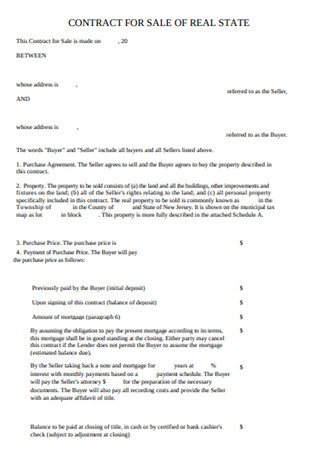
Real Estate Sales Contract
download now -
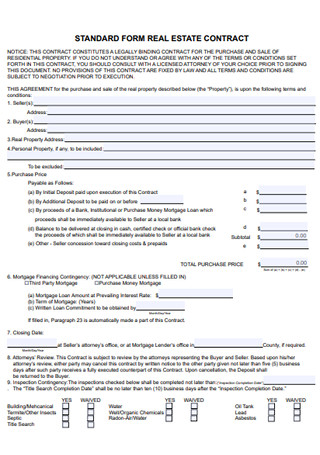
Standard Real Estate Contract Form
download now -
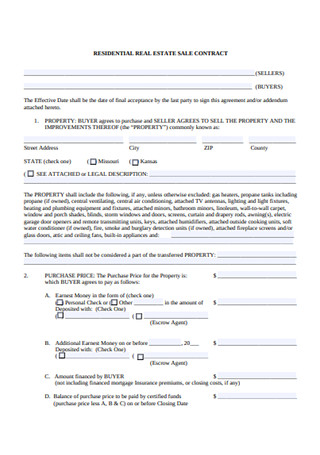
Residential Real Estate Sales Contract
download now -
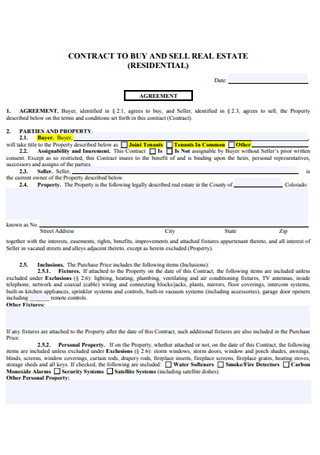
Contract Buy and Real Estate
download now -
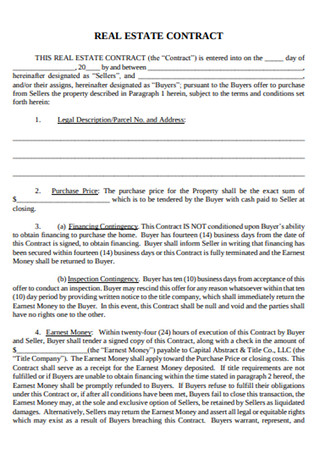
Sample Real Estate Contract
download now -
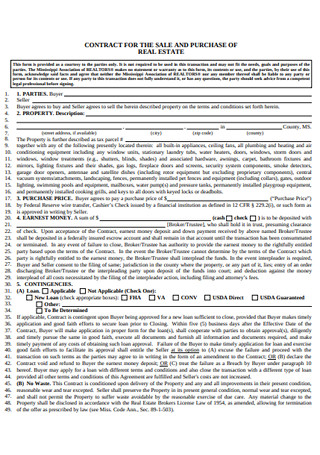
Real Estate Sales Purchase Contract
download now -
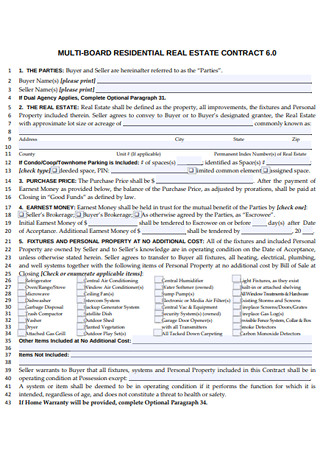
Multi Board Residential Real Estate Contract
download now -
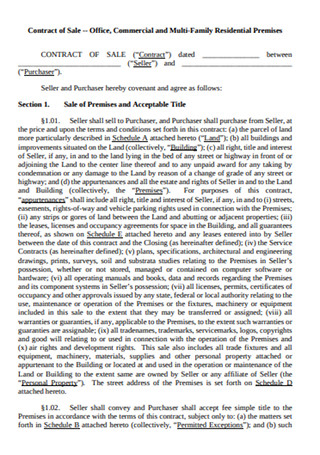
Commercial Real Estate Sales Contract
download now -
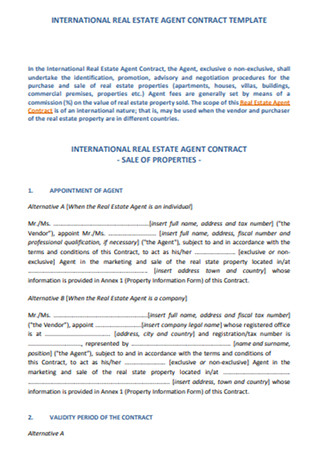
Real Estate Agent Contract Template
download now -
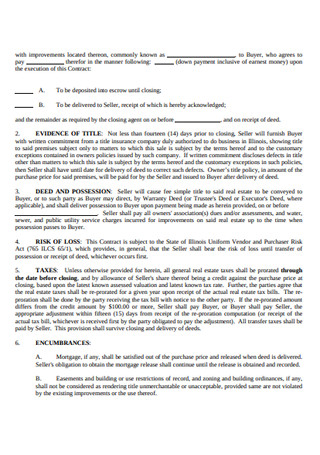
Formal Real Estate Contract
download now -
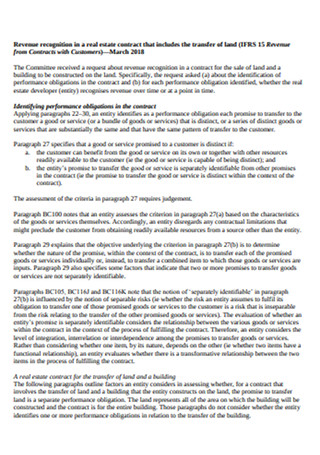
Revenue Real Estate Contract
download now -
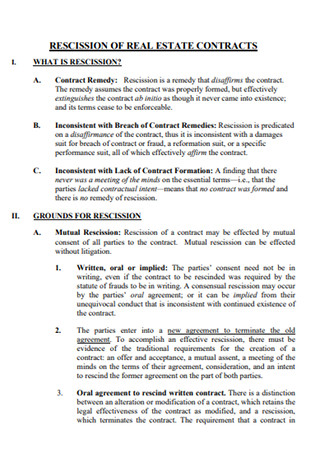
Rescission Real Estate Contract
download now -
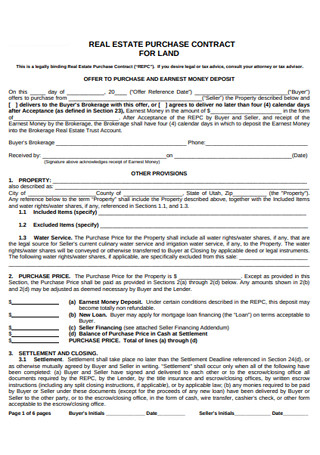
Real Estate Land Purchase Contract
download now -
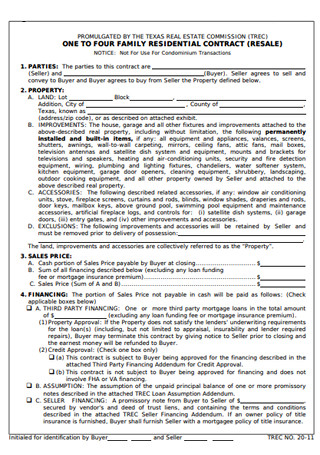
Real Estate Commission Contract
download now -
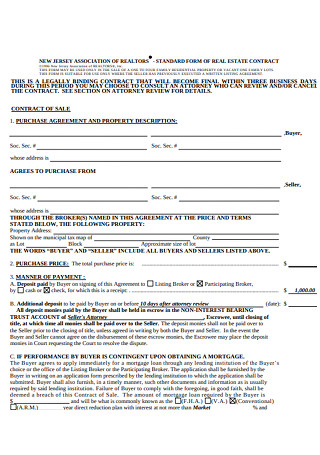
Standard Real Estate Form
download now -
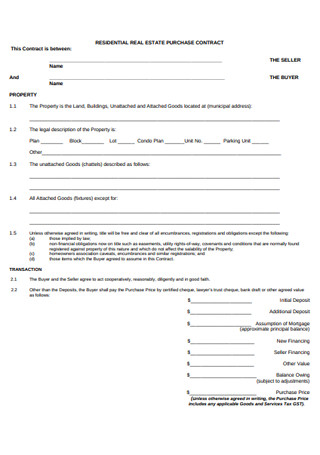
Residential Real Estate Purchase Contract
download now -
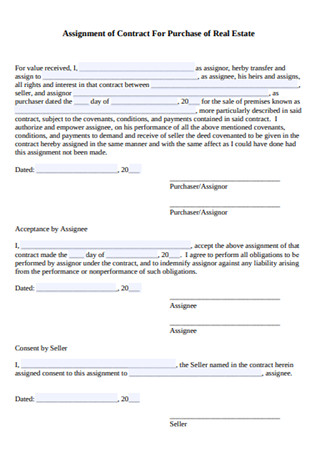
Assigment of Contract for Purchase of Real Estate
download now -
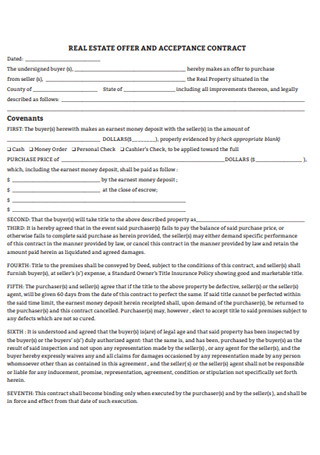
Real Estate Offer and Acceptance Contract
download now -
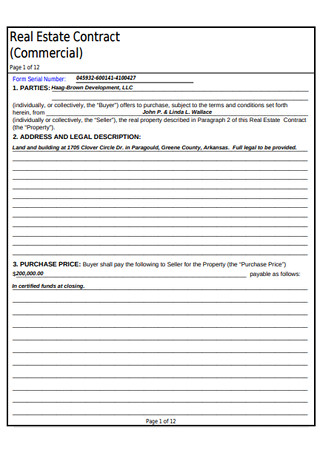
Sample Commercial Real Estate Sales Contract
download now -
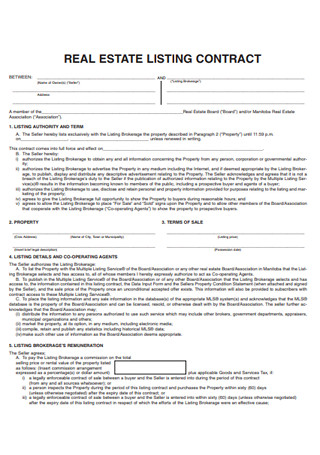
Real Estate Listing Contract
download now -
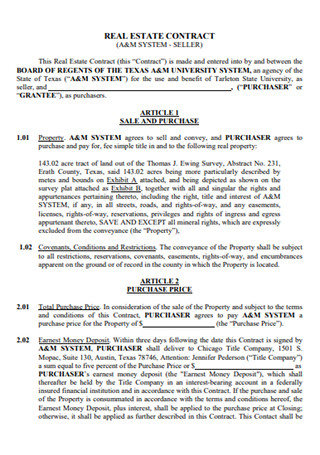
Printable Real Estate Contract
download now -
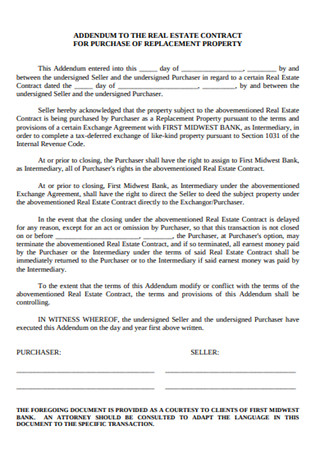
Real Estate Property Contract
download now -
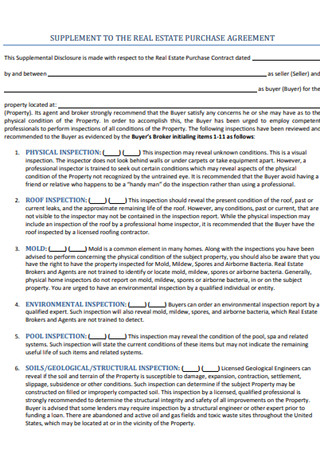
Supplement to Real Estate Purchase Contract
download now -
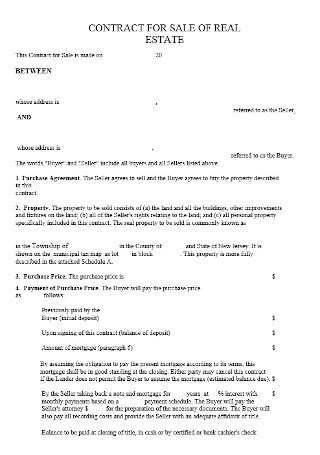
Contract for Sale of Real Estate Template
download now
What is a Real Estate Contract?
Before indicating the use and importance of real estate contracts, we need to define what real estate is. Real estate is any piece of land and its additional fixtures, such as buildings, fences, and any property that adds to the land’s market value. The natural resources, such as the mineral components, flora, and fauna species, within the land is also considered as real estate. By this definition, a real estate contract outlines the agreement between a buyer and a seller with real estate as their main product of exchange. The contract protects the interests of both parties and minimizes the probability of risk, at the same time. The real estate contract defines the details of the agreement. Starting from the parties involved down to the payment terms and transfer of ownership and titles. All the decisions regarding the arrangement must be present in the contract to make it legally enforceable under the state laws it follows, which should also be in the contract. In total, a real estate contract is a legally binding document among parties that calls for an exchange of goods, which are the property and money.
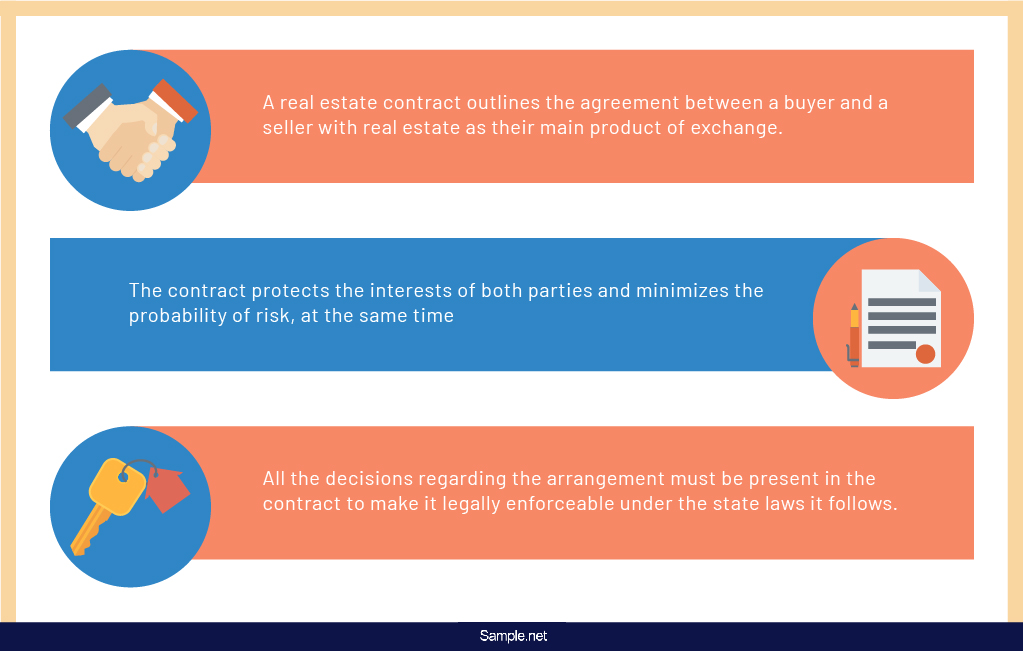
The Building Blocks of a Real Estate Contract
Real estate contracts can be easily assumed as another because it does not only deal with the purchase; it also concerns development, marketing, and appraisal. In order to make sure that the contract that you are getting in to is a legitimate real estate contract, there are several vital elements that you may need to check.
Varieties of Real Estate Contracts
The variety of these contracts accommodate the type of transaction and property. Real estate is classified into four types: residential, commercial, industrial, and vacant land. Different kinds of contracts are needed for these properties because of how money is generated among these properties. An example is the main purpose of building commercial estates is to generate income. And because of these differences among the estates sales, development, and assessment, real estate contracts must be flexible, to a certain extent.
How to Compose a Real Estate Contract
Real estate is one of the leading industries that drives the US market on an upward projection. More and more businesses are venturing out to this industry. And, the real estate market never loses its demand because the demand from the population also increases through time. So, as a way to keep up with the industry’s growth, it is essential that most of us are familiar with the process of how to make a real estate contract. These pieces of information are especially helpful when you are already a part of the industry or you are still planning to break into the scene.
Step 1: Be Straightforward with Payment Terms
The starting details of the real estate contract includes introducing and adequately labeling the involved parties. Mention the legal names of the parties, especially when it is a for-profit or non-profit organization. The name of the property and its address follow. After the necessary details, dive directly to the particulars of the payment terms. You can start by indicating the total selling price and then making mention of the need for earnest money and how much it is. Earnest money is used to signify that the buyer is willing to go through the sale, and it is often incorporated with the down payment. It is also necessary to mention the money’s use and where it is stored for the meantime. It is also crucial to include the due dates for the payments. It includes dates for the monthly fees and the end dates for earnest money and miscellaneous charges.
Step 2: Specify the Inclusions of the Property
After settling with the payment details, it is also a requirement to provide the inclusions of the property. For houses and residential spaces, you can include a list of the fixtures that are already in the property. In dealing with commercial properties, it can consist of the exact dimensions of the place and, maybe, even the floor plan of the area. As for apartment complexes and condominiums are residential, but commercial because its purpose in the first place is to generate money. So, the contract should take note of both the details, as mentioned earlier. Incorporating these details in the contract assures both parties that they are in agreement with what the property is and what it entails. Furthermore, the buyer can use the list on the deal as a checklist in inspecting the property, if everything listed is available and functional.
Step 3: Make Use of Advantageous Contingencies
Do not worry so much about what contingencies to use. These are also called as conditions that are useful in particular situations that may happen in the future. The typical real estate contract contingencies often allow parties to walk away from the agreement in case the condition is not followed. An example is a clause regarding inspection details. When the buyer inspects the property, and it does not have some of the listed inclusions written on the contract, the buyer can choose to walk away from the agreement without breach. Another standard contingency is the financing clause. This clause also allows parties to back out from the contract when the finances do not follow through. It can be a common occurrence in situations where the buyer is still applying for a mortgage. When the buyer’s application does not follow through before the closing date of the deal, the seller can choose to walk away and select a more competent buyer.
Another contingency that some sellers choose to include in the tenant lease agreement involves paying for a warranty. It clarifies who will pay for damages, especially in residential areas. Including this clause will specify and clear out the expectations of the lessee or the tenant. The clauses, as mentioned above, are some of the standard examples that are commonly used in real estate contracts. You can decide to come up with your terms and addendums to make the arrangement more tailor-fit to your agreement.
Step 4: Include Dispute Resolutions
It is essential to include stipulations regarding dispute resolutions in any contract. These details essentially outline what behaviors both parties expect from each other. Given that each side does avoid doing acts that will lead to premature termination of the agreement. Consequently, these set resolutions for possible conflicts also serve as safety nets to do away from possible costly legal proceedings and arrangements. More or less, it helps avoid court trials if a party fails or consciously avoids the fulfillment of their end of the agreement. The statements covering dispute resolutions can also be contract contingency that is followed when met with certain conditions. One of the situations that this contingency is especially helpful is when a party defaults or wishes to terminate the contract. The seller can indicate the fee, need for a termination letter, and impending consequences for the buyer. It can also include the method of calculation to ensure and practice transparency.
Step 5: Finalize the Agreement
A real estate contract may be lengthy because of all the necessary information required by both parties. And to finalize and wrap up the deal, do not forget to include provisions that cover the tax calculations. The percentage of the deduction for the real estate firm is also necessary if the sale was made through an agency. Apart from these, do not forget to include stipulations that indicate the state laws that make the agreement legal and enforceable. And if you wish to do so, your party can choose to add a deadline to accept the offer or to put up a counter offer. To make sure that everything in the contract are legal and necessary, you can ask for legal advice from a lawyer. Once the signatures are affixed on the pages of the document, the arrangement is final and suitable to go.
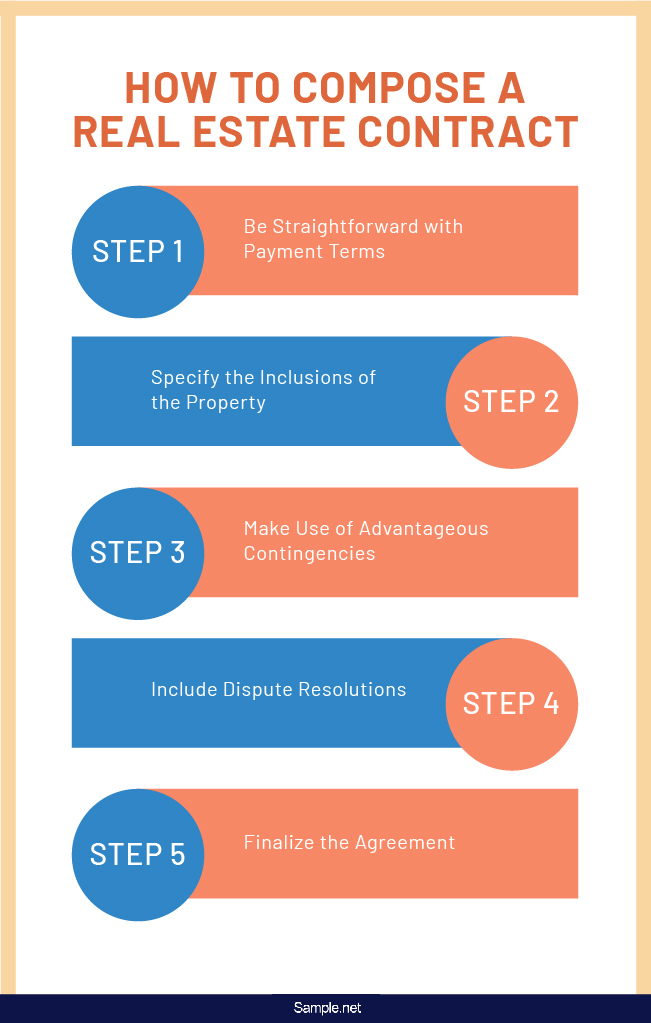
The workings within the real estate industry today is significantly different from the crude origins of landowning and development. All arrangements regarding ownership and use of these tangible properties are documented in writing. This process maintains order in a successful industry, as it continues to grow over the years. People can expect changes in the processes within the industry, but the importance and necessity of real estate contracts will remain the same.
